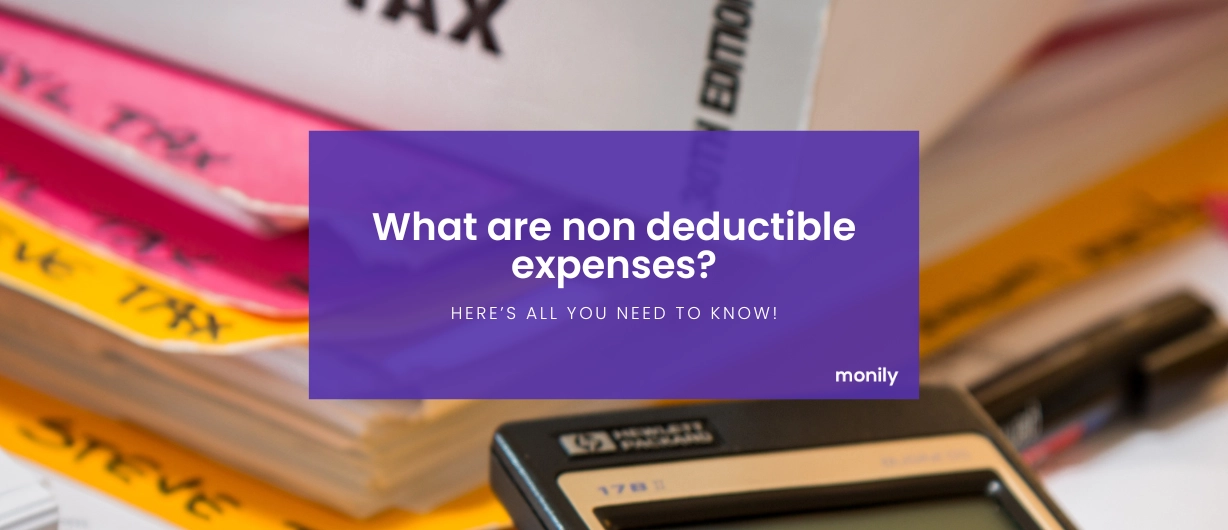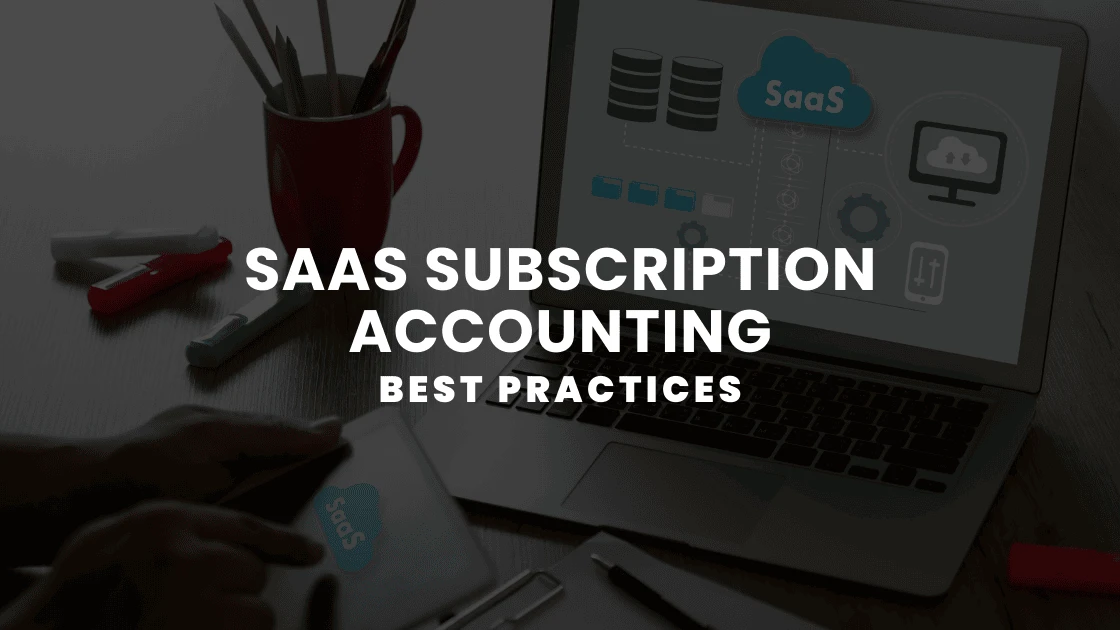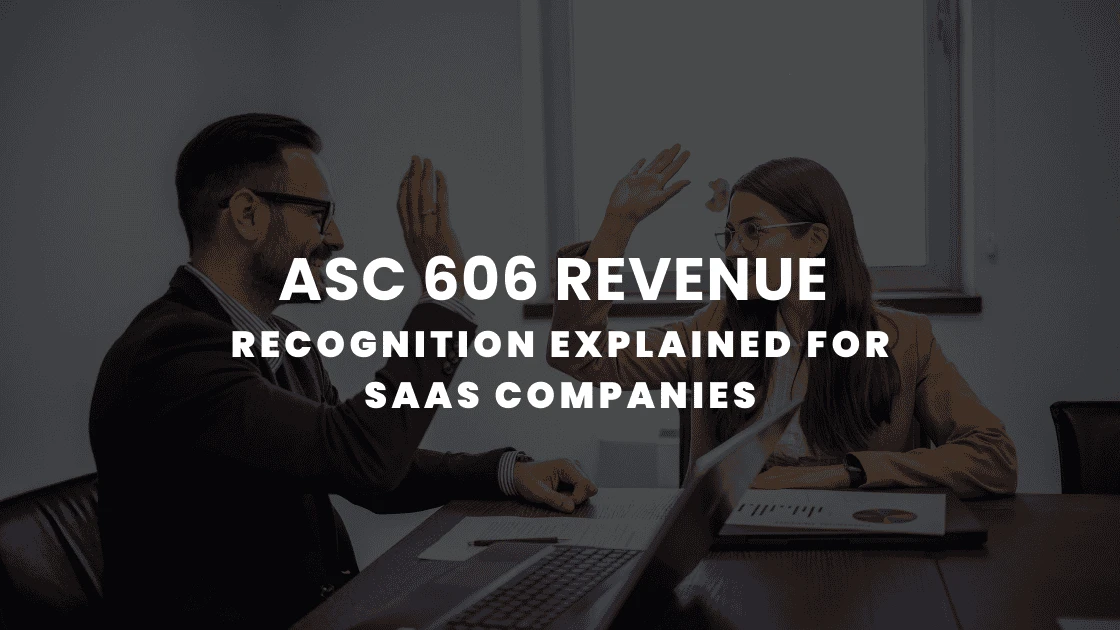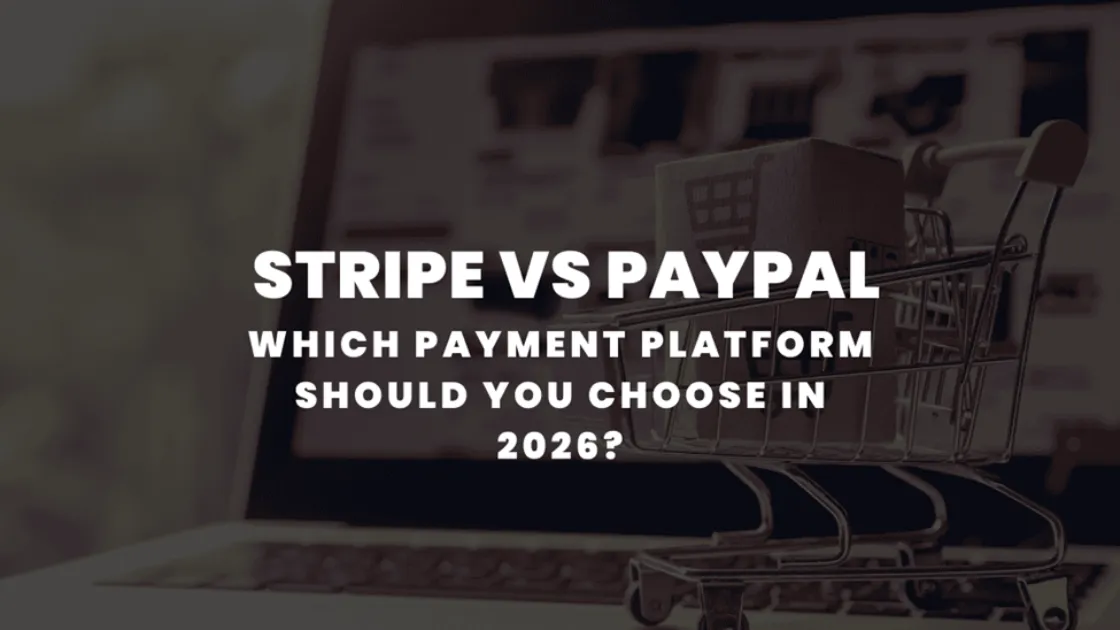April 22 2024 | By Nida Bohunr | 7 minutes Read

The Concept of Non-Deductible Expenses
How Can I Differentiate Between Non-Deductible Business Expenses and Others?
Why is it Important?
Examples of Non-Deductible Expenses You Need to Know
1. Personal Expenses
2. Capital Expenses
3. Travel, Food, and Other Entertainment
4. Clubs and Memberships
5. Political Contribution
6. Life or Disability Insurance
7. Gifts
FAQs
1. What happens to non-deductible expenses?
2. Where do non-deductible expenses go?
3. Is non-deductible taxable?
4. What are tax non-deductible expenses?
Bonus: What is Tax Credit?
More Questions? Reach Out to the Experts at Monily
The IRS expects to receive tens of millions of returns filed by taxpayers in 2024, at the last minute. Yes, most tax filers wait till the last minute to file their taxes, so if you are feeling particularly guilty for putting off your taxes, you’re not alone!
However, filing taxes at the last minute, applying for extensions, and navigating through the confusing terms that IRS tends to throw our way can get difficult. “Non-deductible expenses” is one such term that has left tax filers scratching their heads since it was first introduced.
Luckily for you, we are here to walk you through the complicated nature of non-deductible business expenses and provide you with all the knowledge you need to face tax season head on!
If you are someone who needs to regularly deal with business expenses, you may often come across certain receipts and invoices that don’t seem to fall in any category. These invoices, often submitted by employees for miscellaneous expenses, may classify as non-deductible expenses.
It is essential to keep in mind the importance of non-deductible expenses as they can quickly land you in trouble. As the name suggests, these expenses cannot be deducted from business income and, thus, need to be submitted for tax deduction. Failure to submit them may lead to a tax audit and penalties.
If you are attempting to manage your finances yourself, it can be quite easy to get caught up in the complexities of expense management. However, the best way to keep track of it is to follow one simple rule;
If it does not directly contribute as a necessary cost for your business to operate, it cannot be deducted from your business income.
It’s quite easy and once you get to it, it isn’t that time-consuming either. There are a few simple things you must keep in mind.
Remember that deductible expenses are ones that are incurred while doing business and are often reasonably priced. Look at the following expenses;
1. A home theater purchased for your own comfort.
2. An office desk purchased for your new HR officer.
Which of the two examples above feel like a non-deductible expense? Well, it’s quite obviously the home theater. This is because the theater isn’t directly related to the operations of your business.
Another easy way to categorize these expenses is to take a close look at your financial statements. Deductible expenses would often fall under the cost of goods sold, office supplies, and so on. Since they directly contribute to your business, they can be deducted from your business income before you file taxes.
So, why do you need to know the difference. Why is it so important to categorize non-deductible business expenses? The simple answer to that would have to be that deductible business expenses offer more tax savings. Understanding the difference between them and filing your taxes smartly can lead to much more savings!
Let’s discuss some common examples of non-deductible expenses that can get you out of a tough spot the next time you file your taxes;
Personal expenses are categorized as those expenses that are not directly related to business activity. They are usually associated with activities you engage in after business hours. For example, a family dinner, house repairs, or your personal cell phone expenses are non-deductible.
Although used for your business, capital expenses are not considered non-deductible by the IRS. This includes buying or renting a property before you set up your business, or any other capital that may have been invested before your business was launched. However, keep in mind that depreciation or amortization may allow you to recover some of these costs.
If your travel is not linked to business activity in any way, it is non-deductible. This means that if you are travelling to and from work, that isn’t tax-deductible. However, travelling to meet a client can be deductible.
As per the IRS, food and beverage expenses are 50% deductible. However, the meal should be consumed within a restaurant, and it should be with a client, adviser, partner, employee, or supplier. In some cases, meals are also fully deductible.
As for entertainment, no entertainment expense is ever deductible. Although food and beverages may apply, the rest of the entertainment doesn’t.
Although you might argue that your activities are linked with business activity and promotion, these expenses are non-deductible.
Although it may further your business endeavors at times, contributing money to political groups does not qualify and isn’t deductible.
Insurance that is applicable to a business owner, regardless of whether they are self-employed, or a business entity, is not deductible in any scenario.
The IRS allows you to deduct up to $25 per gift recipient. However, no matter how much more you spend, the deduction stops at $25.
Here are some commonly asked questions regarding non-deductible business expenses. Take a look and see if you spot anything that sounds familiar!
Businesses often incur both deductible and non-deductible expenses. A deductible expense is one that often gets subtracted from your business income and generally reduces your tax liability.
A non-deductible expense on the other hand does not impact your taxes in such a way. However, that is not to say that they are not a PART of your taxes. They most certainly are!
Wondering where non-deductible expenses really go? Non-deductible expenses are reported on tax-forms that are specifically for these expense types. For example, these expenses will not be filed on personal tax returns. In fact, they would be reported on Schedule K1.
Non-deductible expenses are those that cannot be taken out of your income before it is evaluated for tax. This means that these expenses can take a significant toll on your profits, so it is wise to account for them accordingly.
Tax non-deductible expenses are essentially those expenses you cannot categorize as tax-deductible costs.
We now know all there is to know about non-deductible expenses. Let’s dive into a concept that is often known as tax credit.
Tax credit is something you can receive credit for as long as it is related to business activity. For example, the IRS often grants tax credit for child and dependent care.
If you are paying someone to care for your child or a dependent while you are at work, this expense qualified for the Child and Dependent Care Credit. All you need to do is prove credibility and attach Form 2441 to Form 1040 to qualify.
Another well-known tax credit comes in the form of Research and Development. This is applied for using Form 6765, but you must fill it in time to be able to qualify for the credit. This tax credit is an incentive of sorts which allows many startups to invest heavily in research and introduce new inventions to the market everyday.
Have many more questions you need to ask? Not to worry! Reach out to us at Monily and ask away! Our experts are here for you round the clock to answer any concerns you have regarding your financial statements and filing your taxes.
It can be quite hard to tackle tax season all on your own, especially as a business owner who already has a lot on their plate. We can take some of that load away from you so you can focus that time on important business decisions.
Let us handle that complicated jargon and pass over those intricate tax forms to us. Simply connect with a consultant and help us help you. Walk us through your financial statement, concerns, and goals for the next quarter and let us transform your finances.
The importance of understanding different expense types and their effects on taxation cannot be overstated. In fact, this is often the difference between whether your business stays afloat or sinks under pressure.
The best thing? Our experts are available to assist you around the clock. We offer multiple software integrations that make managing your business an absolute breeze. Worried about past records? We have got you covered! We can clean up your past accounts and help you transition to an accounting tool of your choice in no time!
Why wait? Call us today and book a slot to speak with our experienced accountants!
Subscribe for business tips, tax updates, financial fundamentals and more.
MORE BLOGS

Running a SaaS business can look simple from the outside. Customers sign up, pay monthly or yearly, and keep using the product. Quite straightforward, right? Behind […]
Learn More →
Revenue is the heartbeat of any SaaS business. But how and when that revenue shows up on your books can change everything, from investor confidence to […]
Learn More →
If you’re a small business, we will absolutely get it if you say you’re having a hard time choosing a payment platform for your company. And […]
Learn More →